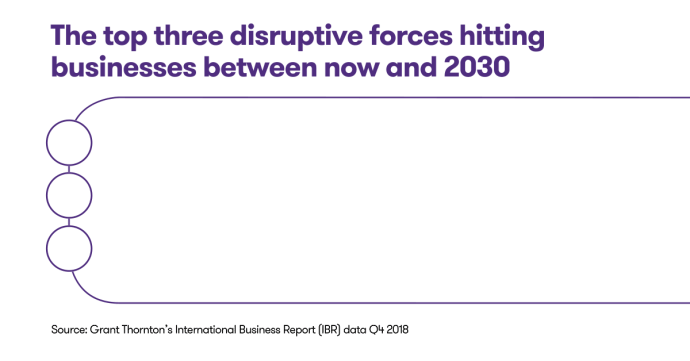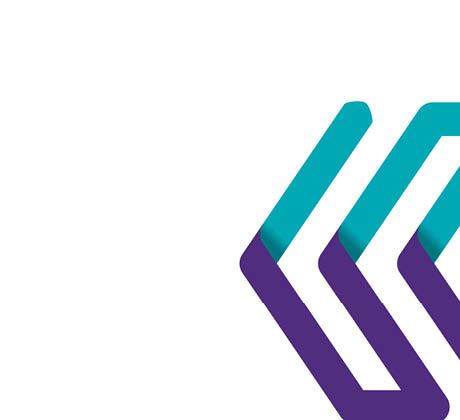-
Audit of annual and consolidated financial statements
We place particular emphasis on customized solutions and international service and adapt our services to your needs.
-
Assurance related advisory services
Assurance related advisory services are based on the knowledge and expertise that are the staff of life of our auditors.
-
Global audit technology
We apply our global audit methodology through an integrated set of software tools known as the Voyager suite.
-
Accounting related consulting
Accounting in accordance with UGB, US-GAAP or IFRS is in constant motion. The integration of new regulations into their own accounting systems poses special challenges for companies.
-
Corporate Tax
We are your problem solvers for corporate tax issues
-
Restructuring, Mergers & Acquisition
Expertise and creativity for the perfect structure
-
International Tax
We are here, whenever our clients require our assistance
-
Transfer pricing
We are your experts for an optimal transfer pricing structure
-
Indirect Tax & Customs
We take care of your indirect taxes so you can take care of your business
-
Private Wealth
We are your competent partner in the field of Private Wealth Tax Services
-
Real Estate Tax
We are a valuable partner at every stage of your property's life
-
Global Mobility Services
Local roots and global networking as a secret for successful assignment management
-
Advisor for Advisor
As advisors for advisors, we support in complex situations
-
Bookkeeping & Financial accounting
Financial accounting is the basis for many decisions in the company. Only those who prepare their figures clearly and get a good overview of their company can recognize weak points in time and react to negative developments. The use of state-of-the-art software (BMD) allows you to access your figures at any time. Digital document management and a document management system for data archiving are a matter of course. We take care of your financial accounting.
-
Preparation of annual & consolidated financial statements
Depending on the size of your company and the legal form chosen, you are obliged to prepare annual financial statements. In addition, shareholders, owners and management want to be provided with financial information on a regular basis. We support you in fulfilling your recording obligations and thus ensure that you present companies, the bank and other addressees with meaningful and reliable figures.
-
Payroll Services
Payroll services are among the subject areas that are changing rapidly and constantly gaining in complexity. This is where tax law, social security law, labour law, residence law and other legal matters come together. Our experts will help your team to stay up-to-date and solve complex issues. But we are also happy to take care of your entire payroll accounting.
-
Tax Compliance
Tax authorities keep entrepreneurs and freelancers constantly engaged with tax issues, so they play a central role in almost every business decision. Depending on your needs, our services range from the preparation of tax returns, the execution of tax calculations with a thorough review of the data as a basis for assessment, to international tax compliance for several countries.
-
Robotic Process Automation (RPA)
Robotic Process Automation (RPA) is a software-based technology that mimics a series of activities within and between systems based on a set of instructions typically to complete a process.
-
Valuation
Valuations are a core competence of Grant Thornton Austria. As auditors and tax advisors we combine profound know-how with our practical experience to offer you customized solutions for your valuation assignment. Our industry expertise is based on years of services to our clients, including listed companies as well as owner-managed companies with an international focus. We advise on valuation matters related to arbitration and provide expert opinions.
-
Forensic Services
When it comes to risks in business, our experts are on hand. We support you not only in suspicious cases or in disputes, but also develop suitable strategies in the area of prevention to avoid serious cases as far as possible. Our Cyber Security team helps you to keep your networks and applications secure and is quickly on hand in the event of a security leak.
-
Transaction Support
We can support you throughout the transaction process – helping achieve the best possible outcome at the point of the transaction and in the longer term.
-
Sustainability Services
Sustainability is no longer a trend, but the only way to create a future worth living. Our experts will support you in successfully developing your sustainability strategy and preparing your sustainability reporting in compliance with regulations.
-
Merger & Acquisition
Companies start new activities and separate from old ones, cooperate and merge. Markets and competitive conditions are subject to constant and increasingly rapid change. As a result, existing business models are changing. Some companies have to restructure and reorganize. But new business opportunities also open up.
-
Restructuring & Going Concern Forecast
Restructuring & Going Concern Forecast: Bundled services for your strategic, operational and financial decisions offer the right answers for companies, banks, shareholders and investors.
-
Internal Audit
Internal Audit helps companies and organisations to achieve their goals by analysing and evaluating the effectiveness of risk management, controls and management and monitoring processes. Internal Audit focuses on independent and objective audit (assurance) and consulting services that improve the value creation and business activities of your company.
-
Expert dispute resolution & advisory
Grant Thornton Austria offers comprehensive services in the field of business-oriented expert services with a broad range of competencies from banking to communication. The core activity of experts is the objective recording of findings and the preparation of expert opinions - regardless of all external circumstances. Our experts Gottwald Kranebitter and Georg H. Jeitler, as sworn and court-certified experts, ensure that the highest professional standards and the principle of objectivity are observed.
-
Blockchain and Crypto-Asset
Blockchain as a carrier technology for crypto currencies and smart contracts, among other things, is becoming increasingly important. Grant Thornton Austria offers comprehensive audit and confirmation services for block chain technologies and business models.
-
Corporate & Brand Strategy
We support you in developing growth strategies for a sustainably successful future and in maximizing the potential of your brand.
-
Cyber Security
Cyber incidents, IT system failures, the resulting business interruptions and the loss of critical data are one of the greatest business risks for companies. Recent cases underline the need for strategic protection and awareness of the issue and require a holistic approach and technical expertise that takes into account all legislative, regulatory and technical aspects of cyber security to protect companies against the daily increase in cybercrime incidents.
-
International Project Coordination
Our International Engagement Management team is your central point of contact for international projects in all our service lines. We take care of operational project management for you and act as a central point of contact and coordination for your projects. We support companies that start international projects from Austria as well as companies from abroad that want to gain a foothold in Austria or use Austria as a hub for their international projects, especially in the DACH (Germany, Austria and Switzerland) and CEE region.
-
International Desks
As a member of the Grant Thornton network, we guarantee direct access to resources from our worldwide circle of partners. This global connection enables us to seamlessly integrate highly qualified specialists and industry experts from different countries around the world into our teams. Through our broad perspective and diverse expertise, we ensure that we can optimally meet the individual requirements of our clients in an increasingly globalised economy.
Digital transformation challenges companies and employees. In order to withstand the pressure to innovate, new structures and new skills are required - regardless of the size of the company.
Grant Thornton explores the way professionals work is evolving, which leadership skills will be needed within the dynamic mid-market to thrive and how organisations can stay competitive in the war for talent and customers in 2030.
A skillset for the new business world: innovate, adapt and collaborate
The business world is arguably on the cusp of the greatest period of transformation since the First Industrial Revolution in the late 1700s and early 1800s. Industry 4.0 is presenting both challenges and opportunities. Organisations with the right leadership skills can take advantage of new trends and emerge as leading players in their sectors.
Innovation is a sustainable and lasting process that runs through the entire company. Business leaders need to adapt their own skills and those of their teams if they want to remain competitive. Everyone in the company should be open to new ideas. You don´t have to have all the answers – but you need to ask the right questions.
What does tomorrow's leadership look like?
New trends in technology will change the way organisations work entirely over the next 10 to 15 years. Almost every industry will be affected by the Internet of Things, cloud-based infrastructure, AI and machine learning.
The biggest disruptors will come from technology, with Grant Thornton’s 2019 International Business Report (IBR)[i] – which surveyed senior leaders in mid-market businesses around the world – suggesting the rise of the digitally connected world will be the greatest change, cited by 42% of respondents. This is closely followed by other technological advances, including artificial intelligence (AI) and big data at 40%; and increasing use of automation and robotics (35%).

Forces beyond technology
Besides technology, there are other aspects, which also affect the world of work. The challenges for managers are increasing - volatile markets, employees with changed life emphases as well as cultural, structural and environmental change. In an increasingly complex world, leadership responsibility will depend heavily on personal development.
Demographic developments will present companies with the challenge of managing the concerns of several generations. In order to obtain and retain young talents, businesses will need to refocus and perhaps restructure their recruitment processes.
Keep the big picture in mind
The challenges organisations and leaders face over the coming years are considerable, and will likely require fundamental changes to both leadership behaviours and business operating models. To find out how your business can build the leadership, vision and culture to harness the disruptive forces of 2030, contact our experts at Grant Thornton Austria.



